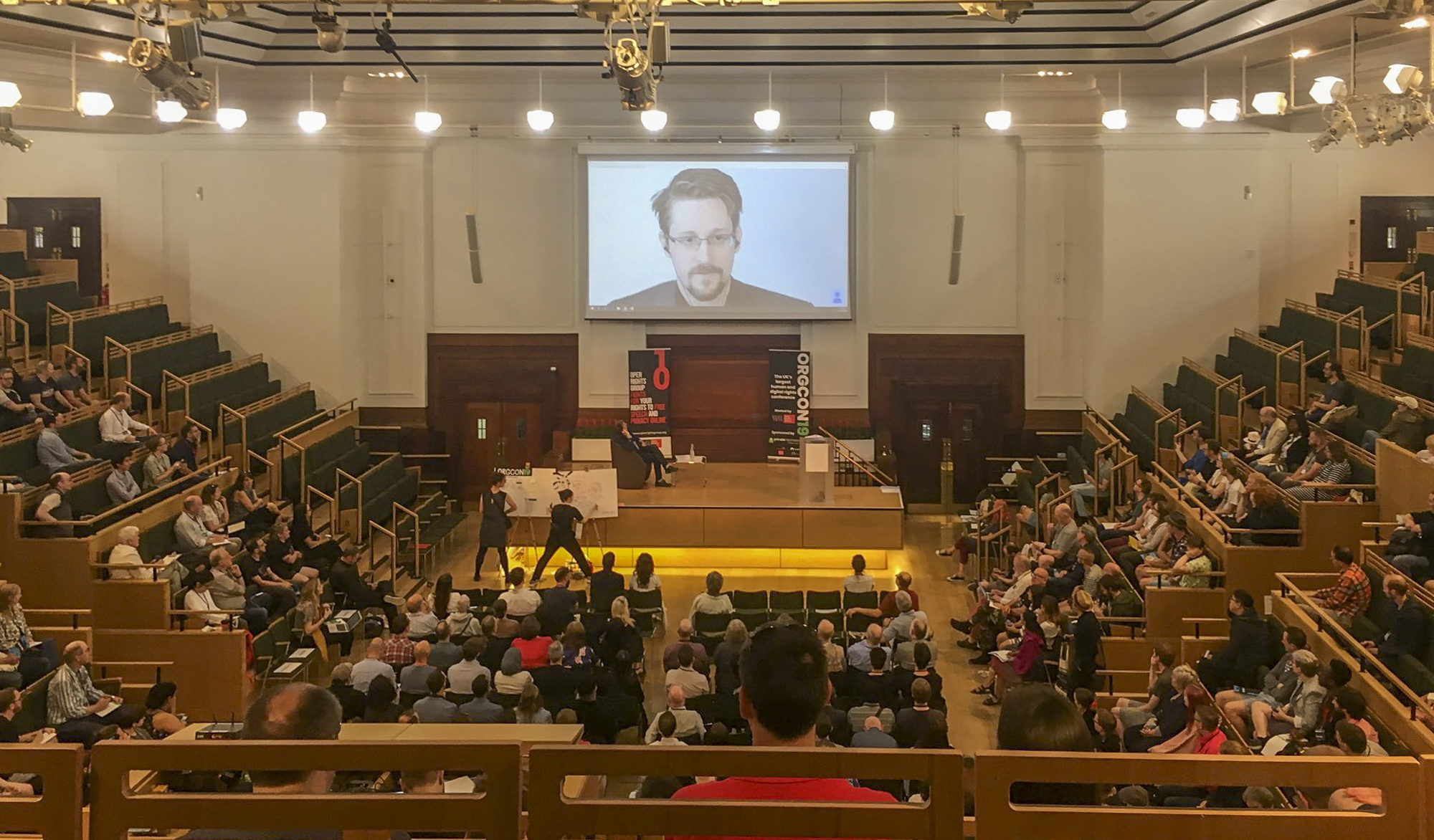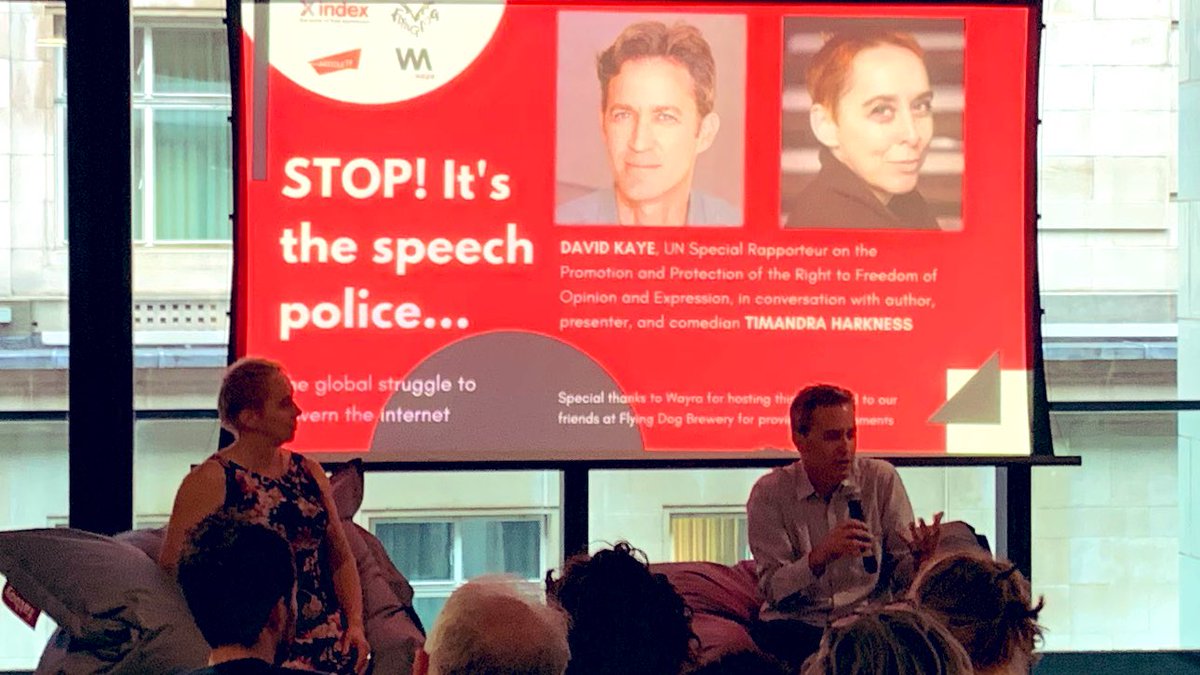Washington DC was awash this weekend with some of the biggest names in journalism, technology, civil society and government — and not just for the star-studded White House Correspondents’ Dinner.
On Friday, Google hosted its first Big Tent event in DC with co-sponsor Bloomberg to discuss the future of free speech in the digital age.

Each panel was guided by hypothetical scenarios that mirrored real current events and raised interesting free speech questions around offence, takedown requests, self-censorship, government leaks, national security and surveillance. The audience anonymously voted on the decision they would have made in each case, but as Bill Keller, former executive editor at the New York Times, acknowledged, “real life is not a multiple choice question”. Complex decisions are seldom made with a single course of action when national security, privacy and freedom of expression are all at stake.
The first panel explored how and when news organisations and web companies decide to limit free speech online. Google’s chief legal officer David Drummond said that governments “go for choke points on the internet” when looking to restrict access to particular content, meaning major search engines and social media sites are often their first targets regardless of where the offending content is hosted online. Drummond said that Google is partially blocked in 30 of the 150 countries in which it operates and cited an OpenNet Initiative statistic that at least 42 countries currently filter online content. Much of this panel focused on last year’s Innocence of Muslims video, which 20 countries approached Google to review or remove. Drummond questioned whether democracies like the US, which asked Google to review the video, are doing enough to support free expression abroad.
Mark Whitaker, a former journalist and executive at CNN and NBC, said staff safety in hostile environments is more important in deciding whether to kill a story than “abstract issues” like free speech. Security considerations are important, but characterising freedom of expression as “abstract” and endorsing self-censorship in its place can set a worrying precedent. Bill Keller argued that publishing controversial stories in difficult circumstances can bring more credibility to a newsroom, but can also lead to its exile. Both the New York Times and Bloomberg were banned in China last summer for publishing stories about the financial assets of the country’s premier. This reality means that news organisation and web companies often weigh public interest and basic freedom of expression against market concerns. Whitaker acknowledged that the increased consolidation of media ownership in many countries means financial considerations are being given even greater weight.
The second panel debated free speech and security, with Susan Benesch of the Dangerous Speech Project standing up for free speech, former US Attorney General Alberto Gonzales coming down hard on the side of security, and current Deputy Secretary of Homeland Security Jane Holl Lute backing up Gonzales while recognising the vital role free speech plays in a functioning society.
In the first scenario posed to this panel, audience members were split on whether mobile networks should be shut down when a clear and imminent threat, such as the remote detonation of a bomb, arises. Lute said, “the first instinct should not be to shut down everything, that’s part of how we’ll find out what’s going on,” whereas Benesch focused on the civil liberties rather than surveillance implications of crippling communications networks.
In cases of extremism, which the panel agreed is often more easily and quickly spread via digital communications, Benesch endorsed counter speech above speech restrictions as the best way to defend against hate and violence. 94 percent of the audience agreed that social media should not be restricted in a scenario about how authorities should react when groups use social media to organise protests that might turn violent.
Google’s executive chairman Eric Schmidt closed the event by highlighting what he considers to be key threats and opportunities for digital expression. Schmidt believes that the world’s five billion feature phones will soon be replaced with smartphones, opening new spaces for dissent and allowing us “to hear the voices of citizens like never before”. Whether he thinks this dissent will outweigh the government repression that’s likely to follow is unclear.
Big Tent will make its way back to London next month where Google hosted the first event of its kind two years ago. The theme will focus on “innovation in the next ten years” with Ed Milliband, Eric Schmidt and journalist Heather Brooke as featured speakers.
Google is an Index on Censorship funder.




